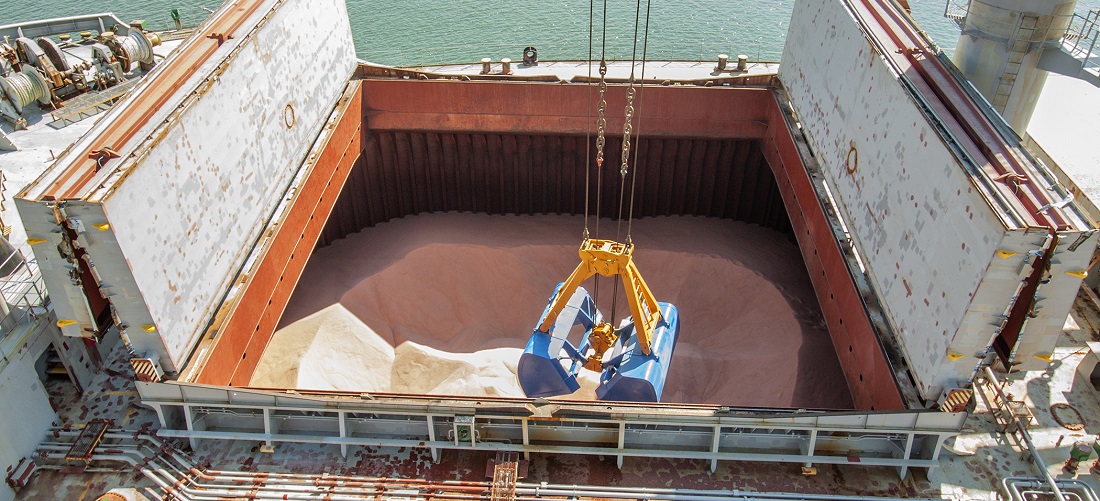
Lack of fertilizers hysteria misleads importers into buying excessive reserves
Jan, 03, 2023 Posted by Gabriel MalheirosWeek 202301
When Russia attacked Ukraine at the beginning of 2022, the Brazilian agricultural market began to fear an eventual lack of fertilizers, as the Russians are top global suppliers. However, the year ended on a very different note. Despite the war’s ongoing status, Brazil’s reserves are so high that it had to resell part of what it had imported.
Was it all for nothing?
Not necessarily. Although Brazil is a major exporter of agricultural commodities such as grains (for example, soybeans), 70% of the fertilizers used in the crops are imported, according to agricultural consultancy Cogo.
About 23% of organic or chemical fertilizers imported in 2021 came from Russia, shows the Comex Stat report by the Ministry of Economy.
Because of the war, in February, farmers grew wary of having no fertilizers available for the 22/23 crop. People were concerned about the future, said professor Paulo Sergio Pavinato, who teaches in the soil science department at the “Luiz de Queiroz” School of Agriculture at the University of São Paulo (Esalq/USP).
The situation prompted companies that sell fertilizers to rush to complete purchases, which usually only happens in the second half of the year, highlights consultant Maisa Romanello from Safras & Mercado.
Importers looked for the product in non-traditional countries as well. Then-minister of agriculture Tereza Cristina even traveled to Canada to negotiate the purchase of potash.
See below the volume of fertilizers imported by Brazil from January 2019 to November 2022, according to the DataLiner market intelligence service by Datamar.
Fertilizer imports – Brazil | Jan 2019 – Nov 2022 | WTMT
Source: DataLiner (click here to request a demo)
Also, on the occasion, then-president Jair Bolsonaro took advantage of the juncture to speed up the vote on a bill that allowed mining on indigenous lands. The idea was to use these lands to extract potassium.
Why is there a surplus?
Russian ships continued normally coming to Brazilian ports, despite banking and logistical sanctions.
The problem is that the price of fertilizers, which had already increased in 2021, skyrocketed after the start of the war. Faced with this, many farmers stopped buying the product as they hoped for lower prices in the future.
“Soy producers, for example, the group that consumes the most fertilizers in Brazil, reduced fertilization,” says Jefferson Souza, fertilizer coordinator at Agrinvest Commodities.
“So, from the middle of the year onwards, fertilizers began to stockpile in the ports, and they were not flowing out as there was no demand from producers, which ended up affecting the storage capacity and, thus, a solution had to be found,” explains Pavinato.
In September, however, fertilizer prices had a sharp drop in Brazil because not all companies managed to find a new destination for these products abroad.
The waiting time to unload a ship in the country was also an obstacle to commercialization.
Pavinato points out that a tonne of potassium chloride, a raw material used in fertilizer manufacturing, cost around US$ 1,300 at the height of the Ukrainian war but is now quoted at around US$ 780.
In October, an importer went to the extent of re-exporting to Turkiye 24,700 tonnes of DAP fertilizer from Jordan. In September, 17,000 tonnes of phosphate fertilizers from Egypt had already been re-exported.
Re-exports are something totally atypical for Brazil. “We are not exporters of fertilizers; we are importers,” points out Souza from Agrinvest Commodities. Still, due to favorable prices, competitors from other countries were seen as potential consumers.
In November, the Fertilizer Purchasing Power Index (IPCF) closed at 1.1, which means that the product became more accessible to rural producers. There was also an average reduction of 7% in fertilizer prices compared to October.
Fewer-taxed re-exports
To avoid enduring too many losses when reselling products, companies take advantage of the fact that ports have bonded warehouses in which products are only taxed after they leave them to enter the country, explains Pavinato.
Nonetheless, re-exporting is not ideal. “The thing is that many importers paid a high price for the fertilizer they purchased in May, June, and July. And when it arrived here, the cost of making it viable for re-export was prohibitively expensive,” he observes.
Still, Souza points out that the 17,000 tonnes re-exported in September are not representative of the Brazilian demand for agricultural inputs.
For example, Brazil imported 32,699 million tonnes until November, points out the National Association for the Diffusion of Fertilizers (Anda). The volume is 7.4% lower than in the same period in 2021.
2023 tendencies
Fertilizer prices have already retreated to pre-war levels after reaching record highs at the start of the year, according to the Itaú bank’s Radar Agro report.
The prospects are more favorable for 2023, confirms Safras & Mercado’s consultant Maisa Romanello.
“Supply should re-establish itself, and demand will proceed cautiously, not accepting high levels. Thus, prices should retreat and be lower than this year. Even so, they should remain above the average of recent years,” she concludes.
Source: G1
To read the full original article, visit: https://g1.globo.com/economia/agronegocios/noticia/2022/12/29/com-medo-de-faltar-fertilizante-importadores-brasileiros-compram-demais-e-sobra-produto.ghtml
-
Ports and Terminals
Dec, 30, 2020
0
New vessel traffic system in final testing phase at Port of Vitória
-
Apr, 06, 2023
0
Rare metal prices fall on weak automotive demand in China
-
Ports and Terminals
Jan, 29, 2025
0
Port of Paranaguá Detects 51 Trucks with “Adulterated” Soybean Meal Cargo
-
Ports and Terminals
Mar, 02, 2023
0
ABB to improve efficiency of cargo operations at Wilson Sons’ Tecon Rio Grande

